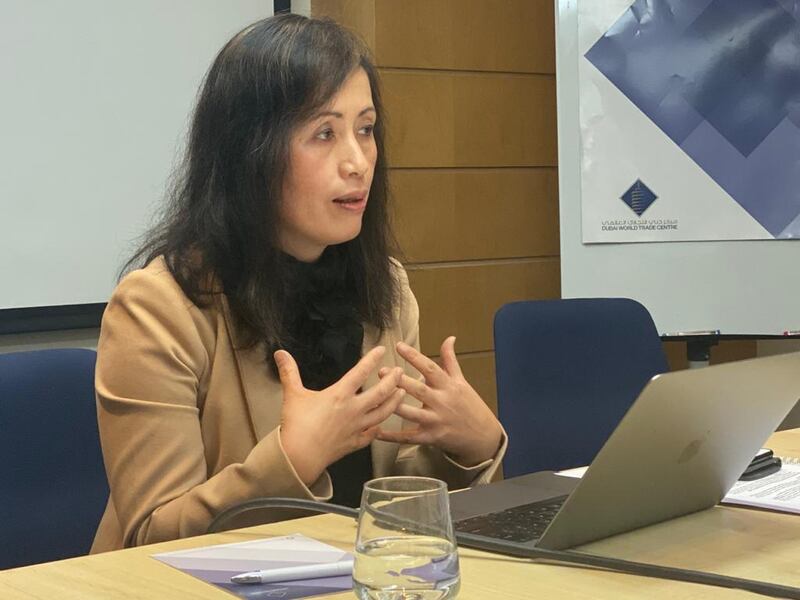More than 70 per cent of UAE respondents are optimistic about having robot co-workers in the future, against a global average of 53 per cent, according to a new survey.
The report, by US technology firm Oracle and HR research and advisory firm, Future Workplace, also found a higher number of UAE executives than the global average are already using some form of artificial intelligence in their workplace.
“People are no longer afraid of the robots,” said Emily He, a senior vice president at Oracle, at an event in Dubai disclosing the report’s findings.
“They have experienced how AI can improve the way they work in a very pragmatic way ... the most they use the technology, the more excited they are about it,” she added.
Oracle interviewed 8,370 executives in ten countries around the world, including the US, China, India, Japan, Australia, Brazil and the UAE.
The survey found that 62 per cent of UAE executives worked at firms that are already using AI, compared to 50 per cent globally.
The most widespread use of AI is through digital assistants such as Amazon’s Alexa and Apple’s Siri.
“Currently, digital assistants are seeing maximum disruption. They are entering all aspects of life and users are usually more comfortable in speaking to a machine that can converse just like any human,” said Ms He.
The UAE, the Arab world's second-largest economy, is projected to benefit more than any other country in the Middle East and Africa region from AI adoption.
The technology is expected to contribute up to 14 per cent to the country’s gross domestic product – equivalent to Dh352.5 billion – by 2030, according to a report by consultancy PwC. The UAE will be followed by Saudi Arabia, where AI is forecast to add 12.4 per cent to GDP.
The Oracle report found nearly 64 per cent of people globally would trust a robot more than their manager and half have already turned to a robot instead of their manager for advice.
Workers in India (89 per cent) and China (88 per cent) lead the world in terms of trusting robots over their managers, followed by Singapore (83 per cent), Brazil (78 per cent), Japan (76 per cent) and the UAE (74 per cent).
"Our 2019 results reveal that forward-looking companies are already capitalising on the power of AI," said Jeanne Meister founding partner at Future Workplace.
As workers and managers leverage the power of AI in the workplace, they are “moving from fear to enthusiasm” and have more time to “solve critical business problems”, said Ms Meister.
When asked what new opportunities AI will create, 43 per cent of UAE respondents chose learning new skills. Some 26 per cent of survey respondents believe AI will help them achieve faster promotions, while 18 per cent felt they could help them secure a higher salary.








